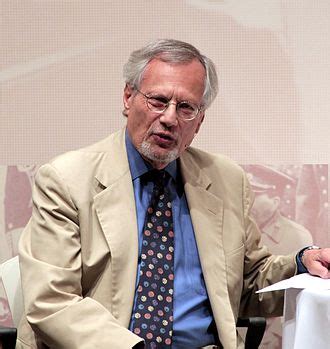A Quote by Michael Wilbon
Chats are so new to newspapers, historically. But they're so incredibly valuable because editors/reporters/columnists get to find out what's on the minds of our readers, what you think we should be writing about, what ticks you off, what makes you happy. Sometimes it can confirm what you think readers are interested in; sometimes it can turn you around 180 degrees.
Related Quotes
A newspaper can follow the compulsions, the desires of the readers. Take the English evening newspapers - they are following the readers' desires when they are interested only in the royal family gossip. But even the most objective, serious newspaper in the world designs the way in which the reader could or should think. That's unavoidable.
I feel that historical novelists owe it to our readers to try to be as historically accurate as we can with the known facts. Obviously, we have to fill in the blanks. And then in the final analysis, we're drawing upon our own imaginations. But I think that readers need to be able to trust an author.
Historically different groups find different things in each comics, as with *X-Men*. Gay readers find parallels to living a closeted lifestyle or choosing to come out and be openly gay. Black readers find a relevance to their lives growing up in America as a black guy. Picked-on brainy kids find a metaphor for being an outsider. It's a simple enough, and direct enough metaphor that it has different shades for different people. And so each reader to some degree gets out of it what they bring to it. That's one of the things I think that makes *X-Men* such a strong property.
I love the fact that so many of my readers are intelligent, exceptional, accomplished people with an open-minded love of diversity. But even more than that, I love it when my readers find lasting friendship with others of my readers - knowing that they met through their mutual affection for my books and characters makes me happy!
Like a lot of us, sometimes I'm preaching to the choir, and sometimes my voice doesn't even get heard at all. Sometimes I think that what I'm writing now might not even have an impact for the next three or four generations. Sometimes I sit there and write, and I think, "It'll be two hundred years before they get what I'm writing about."
Not to any really influential effect, but certainly there have been comments that have surprised me. It's surprising sometimes to get particular perspectives on your work, and it's enlightening sometimes to know that non-writers and readers out there have certain assumptions about everything that I both want to keep in mind and want to forget about why I write, and about the connection between me as a private person and the stuff that I think about on the page.
I think, consciously or not, what we readers do each time we open a book is to set off a search for authenticity. We want to get closer to the heart of things, and sometimes even a few good sentences contained in an otherwise unexceptional book can crystallize vague feelings, fleeting physical sensations, or, sometimes, profound epiphanies." pg. xvi

































